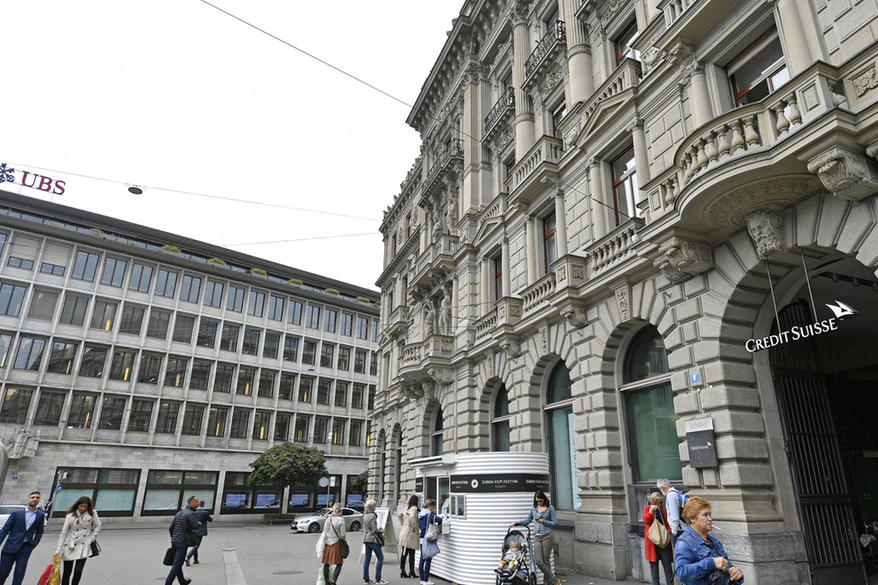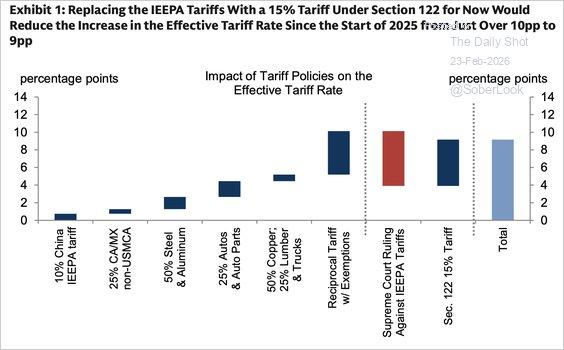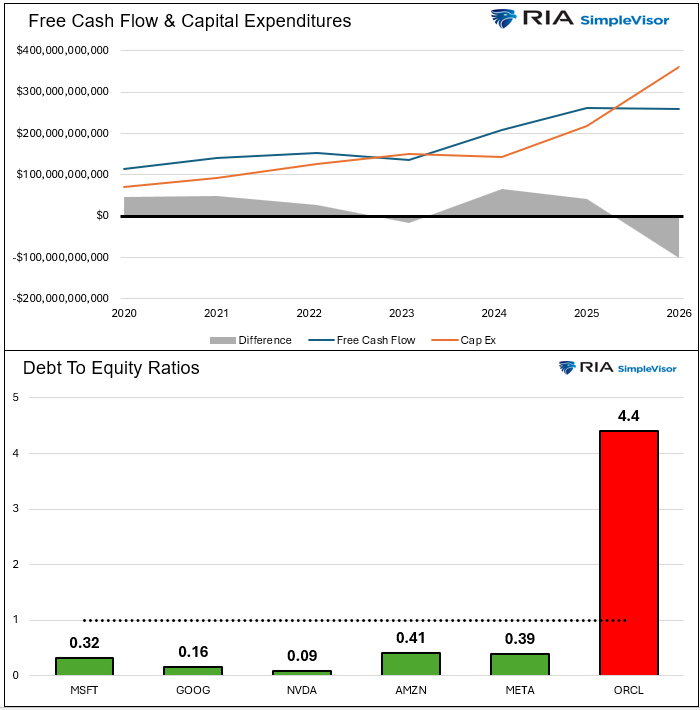
Keystone / Walter Bieri
During the depths of the coronavirus crisis in Europe in late March, Sergio Ermotti remembers sitting in his home study in Lugano, reflecting on the latest financial meltdown to engulf his career as a banker.
“If I go through my last eight years, we had a lot of mini-earthquakes, but never of the magnitude of what we are seeing now,” the 60-year-old UBS chief executive says. “This is a crisis that is driven by fear in a different way . . . this time it’s not just about people losing their assets or savings, it’s about their life, it’s about their families. It’s so profound, so different.”
Switzerland’s largest bank is weathering the crisis relatively well, considering its share price is down only 10 per cent this year, a more modest fall than any other global lender apart from Wall Street’s Morgan Stanley.
This is no accident. Both have built wealth management arms that boast more than $2tn of client assets, generating consistent fees from the wealthy and super-rich desperate for advice on how to trade the pandemic.
The rest of the industry — particularly those focused on bread and butter lending to small businesses and consumers — are facing their toughest test since the financial crisis of 2008, as untold millions of companies face bankruptcy amid unprecedented global lockdowns and travel bans.
Governments and regulators have unleashed trillions of dollars of support measures to prop up the system, ensuring the flow of credit and functioning of markets, and helping households stay afloat with salary supports and repayment holidays. But many of those schemes are set to be withdrawn.
Meanwhile, interest rates that were already negative in the eurozone have been slashed to zero in the US and 0.1 per cent in the UK, piling pressure on banks’ already slim lending margins.
For the smallest and weakest still struggling to recover from the cataclysm 12 years ago, coronavirus could prove fatal. For the biggest, it portends a period of hand-to-mouth survival — weak profits, no dividends and much lower, or no, bonuses — at a time when most investors had already turned bearish.
As ever, Europe’s banks have suffered far more than their US rivals, which have fatter profits to see them through leaner years. Navigating the disruption has been complicated by up to 90 per cent of staff working from home for months on end.
“For the large national banks, facing zero interest rates into the foreseeable future and the significant credit exposure, how can one be confident?” asks Bob Diamond, who ran Barclays during the last crisis. “Please explain to me where earnings are coming from?”
Cushioning the blow of escalating defaults
Vast credit losses are the primary concern. Six months into Covid-19, the numbers are already staggering. The 15-largest US banks have set aside $76bn to cover projected bad debts and their 32-biggest European cousins €56bn, Citigroup data shows.
The combined total of $139bn in loan-loss provisions is the highest since the $186bn reached in the second half of 2009, the nadir of the financial crisis that brought down Bear Stearns and Lehman Brothers. Using a wider sample of banks, consultants at Accenture warn that the estimated losses from bad debts could rise to $880bn by the end of 2022.
Loan-loss provisions have been increased by new global accounting rules — a consequence of the financial crisis — forcing lenders to build reserves well in advance of defaults, particularly in the US where they must now provide for lifetime losses based on the latest economic outlook.
Vikram Pandit, Citigroup chief executive between 2007 and 2012, argues that this time like-for-like losses should be lower because consumers learnt from the “tough times” they endured 12 years ago.
“They are being quite prudent, they’re using some of this money they’re getting from the government to pay down debt, to reduce their balances, they’re spending a little bit less,” he says.
Banks will not bear the full brunt of escalating defaults. The UK government’s emergency small-business lending programme — where as many as half of the “bounce back” loans, with a combined cost of at least £34bn, are not expected to be repaid — puts taxpayers on the line for losses.
Payment holidays on credit cards, mortgages and rents are also masking the current stress on loan books.
JPMorgan wrote off just $1.6bn of loans in its $998bn lending portfolio in its second-quarter results. The UK’s largest mortgage lender, Lloyds, has so far written off just £10.5m of its £38.4bn small business loan book — far below the average for the past three years — even though executives say bad loans could reach £5.5bn of its overall £440bn loan book this year.
“It’s a fool’s game trying to predict the ultimate credit losses from the crisis,” says Jaime Ramos Martin, a fund manager at Aviva Investors, which manages £356bn and is a major shareholder in British banks. “Now more than ever, it’s about picking the business models that are right for the future and sticking with them.”
For those with big investment banking operations, a surge in trading revenues derived from historically volatile markets combined with fees from record corporate debt and equity issuance have softened the blow.
Morgan Stanley posted its highest-ever revenue for a single quarter, including a market-leading 168 per cent increase in fixed-income trading. Despite big provisions for loan losses and future litigation costs, Goldman Sachs’ net profit held steady for the same reason, until an extra $2bn in provisions for settling the 1MDB legal case wiped out those earnings.
However, the trading boom won’t last. JPMorgan boss Jamie Dimon has warned that markets revenues could halve during the rest of the year. More optimistically, Morgan Stanley’s finance chief Jon Pruzan says that while it is “highly unlikely” to see a repeat of the first-half trading bonanza, it would not be a “bad” end to the year since client activity remains “elevated”.
Investors remain wary
Investors remain sceptical. Uncertainty over loan-losses, concerns over revenues in ultra-low-rate environments and bans on dividends and share buybacks have translated into a mass sell-off of the sector.
European bank stocks have plunged 39 per cent this year compared with a 13 per cent fall in the benchmark Stoxx Europe 600 index. In the US, the Nasdaq Bank Index has fallen more than a third, while the S&P 500 is flat for the year. That has wiped out a combined $987bn in shareholder value, Citi data shows.
“Banks have fulfilled their role in the macroeconomy this time,” says Philipp Hildebrand, who headed financial stability at the Swiss National Bank in 2008 and is now vice-chairman of BlackRock, the $7.3tn asset manager. “But in Europe at least, they have not performed from a shareholder point of view.”
Even the most resilient have not been spared. “I’m feeling a bit exasperated,” admits Thomas Gottstein, chief executive at Credit Suisse, referring to the negative reaction to his bank’s $1.8bn second-quarter profit, up 19 per cent year-on-year. “After these numbers, for our share price to be down?”
Investors no longer “differentiate between Swiss, other European banks and the US banks. They throw us all into the same bucket,” he adds. “There is a lot of concern about a second [coronavirus] wave, a W-shaped recovery, another lockdown . . . There’s a lot of cynicism out there.”
European banks trade at an average 48 per cent of the book value of their net assets compared with 89 per cent in the US. Centuries-old national champions Barclays (€17.4bn), Deutsche Bank (€15.6bn) and Italy’s UniCredit (€17.2bn) are collectively worth less than Zoom, the $72bn (€61bn) videoconferencing company founded in 2011.
France’s Société Générale — with its €1.5tn balance sheet and €3.2bn of profit last year — has seen its share price plunge 60 per cent in 2020 and is now valued at €11bn, less than lossmaking workplace messaging app, Slack, at €14bn.
“Things are getting a bit crazy. Economies are in recovery mode, capital and cash positions are very strong and yet bank valuations are worse than in 2009, it beggars belief,” says David Herro, vice-chairman of the $90bn asset manager Harris Associates, which owns top-five stakes in Lloyds, Credit Suisse and BNP Paribas.
“I have to believe we are at or close to the bottom [of the valuation],” he adds. “It’s not easy keeping faith, but this virus will pass like all before it.”
Not all share Mr Herro’s conviction. Bankers’ early optimism that the pandemic would manifest as a sharp economic shock followed by an equally rapid recovery — the ubiquitous “V-shaped” recession — has given way to pessimism.
Ana Botín, executive chairman of Santander, the eurozone’s largest lender, said in March that her bank’s earnings could fall as little as 5 per cent this year, in the wake of the pandemic. Four months on, Santander has set aside €7bn to cover loan losses and booked a hefty writedown of its UK business, pushing the Spanish bank to the first quarterly loss in its 163-year history.
Barclays’ and HSBC’s second-quarter net income plunged 91 per cent and 96 per cent respectively. In the US, $9.5bn of credit charges — including loan loss provisions — pushed Wells Fargo to a $2.4bn loss, while profit fell more than 50 per cent at Citi, Bank of America and JPMorgan.
With little prospect of boosting revenues, executives must cut costs to protect already anaemic profits, particularly in Europe. HSBC and Deutsche Bank suspended previously announced redundancies in March, but less than two months later, lay-offs resumed and deeper cuts were promised.
“Bank management has been focused on survival until now, avoiding banana skins and appearing socially useful, which they’ve done very well,” says Stuart Graham, founder of Autonomous Research. “But as they come up for air and look to 2021 and 2022, there is a lot of pressure to fundamentally readjust their cost base, organically or through consolidation. If this crisis isn’t the motivation to finally address it, what is?”
Capital requirements absorb the blow
Fears for the global financial system peaked in mid-March when the $20tn market for US government debt seized up, leading some to envisage a repeat of the bank collapses of 2008 and 2009. But this time, their loss-absorbing buffers held up.
“Can you imagine if back then we had Covid?” asks Mr Pandit who now runs the fintech investment group Orogen. “It’s hard to imagine what the outcome would have been for the system.”
Davide Serra, co-founder of Algebris, a €13bn asset manager that invests in bank debt and equity, says: “Capital is now five times higher than in 2008, if regulators hadn’t forced it into the system we would have had a real shock.”
“If you think even Deutsche Bank can post an operating profit in the second quarter of a pandemic, when it has been one of the biggest loss making banks in history, that shows you how much the industry has changed,” he adds.
While painful in the moment, crises often precipitate long-overdue structural changes to stagnant global systems.
Ms Botín — who continued a four-generation Spanish banking dynasty stretching back to 1909 when she succeeded her father six years ago — says the recently agreed €750bn European recovery fund will be a “key step” that makes the “prospect of a banking union much more likely to happen”.
“In turn, it would open the door to the possibility of cross-border banking consolidation in Europe,” she adds.
Latest coronavirus news
Follow FT’s live coverage and analysis of the global pandemic and the rapidly evolving economic crisis here.
The European Central Bank recently pledged to remove some longstanding obstacles to big mergers. In July, Italy’s largest retail lender Intesa Sanpaolo succeeded in a €4.2bn hostile takeover of local rival UBI Banca, marking the largest European banking deal since the financial crisis.
Others are not so sanguine about a wave of deals saving the fragmented sector. “Waiting for consolidation is like waiting for Godot, it just doesn’t come,” says Ronit Ghose, head of bank research at Citi. “So instead we face more cost cuts, sadly.”
Equally, those most influential in creating the post-crisis regulatory system urge caution, with the pandemic’s fallout set to be a multiyear phenomenon.
“The first phase of Covid has been managed well, and what the official sector did was impressive,” says Bill Coen, former head of the Basel committee of international banking regulators. “But we are now approaching the second wave of stress, a tidal wave of credit issues, so it’s far too early to claim victory yet.”
As government support schemes are withdrawn and borrowers start to come up short on their loans, banks may have to sacrifice their prized role as the good guys. So far, they have been willing conduits for trillions of government support and largely sympathetic to customers in distress, but that will change.
“There is still massive guilt over the last crisis, we used to be the pillars of society and then we became pilloried,” says the chief executive of a big UK bank, who asked not to be named. “Now we want to be the heroes, save the economy and be knighted when it’s over.”
“However, we will reach a point where the debt has to be collected and then the tough choices will start,” he adds. “A lot of these companies are going to go bankrupt, we’ll have to write the debt off and that will be painful. It’ll be difficult to be the heroes then.”
Vikram Pandit is chairman and CEO of Orogen and not chairman of TGG as stated in an earlier caption
Copyright The Financial Times Limited 2020
© 2020 The Financial Times Ltd. All rights reserved. Please do not copy and paste FT articles and redistribute by email or post to the web.
Full story here Are you the author? Previous post See more for Next postTags: Business,Featured,newsletter


































